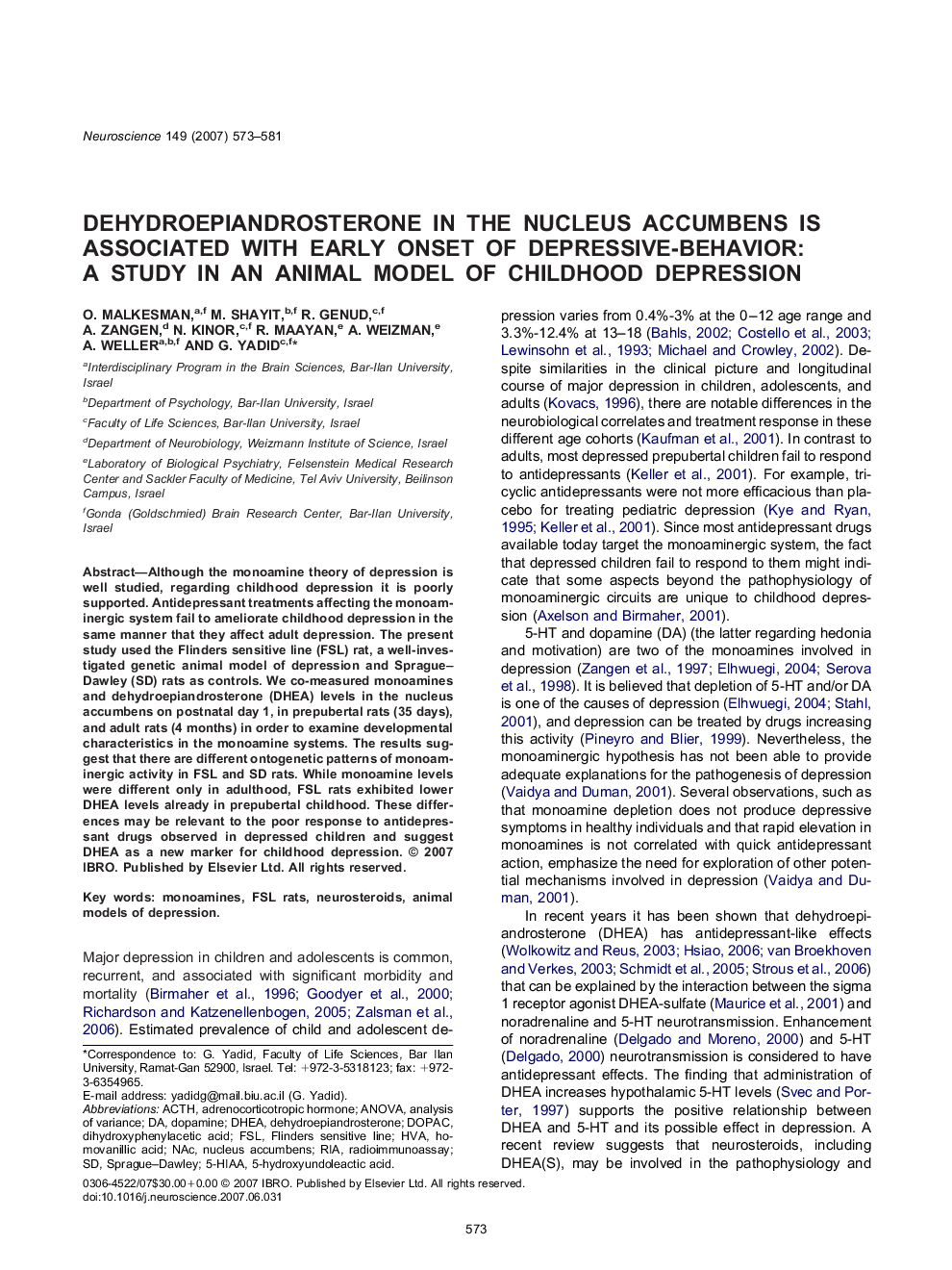| Article ID | Journal | Published Year | Pages | File Type |
|---|---|---|---|---|
| 4342382 | Neuroscience | 2007 | 9 Pages |
Although the monoamine theory of depression is well studied, regarding childhood depression it is poorly supported. Antidepressant treatments affecting the monoaminergic system fail to ameliorate childhood depression in the same manner that they affect adult depression. The present study used the Flinders sensitive line (FSL) rat, a well-investigated genetic animal model of depression and Sprague–Dawley (SD) rats as controls. We co-measured monoamines and dehydroepiandrosterone (DHEA) levels in the nucleus accumbens on postnatal day 1, in prepubertal rats (35 days), and adult rats (4 months) in order to examine developmental characteristics in the monoamine systems. The results suggest that there are different ontogenetic patterns of monoaminergic activity in FSL and SD rats. While monoamine levels were different only in adulthood, FSL rats exhibited lower DHEA levels already in prepubertal childhood. These differences may be relevant to the poor response to antidepressant drugs observed in depressed children and suggest DHEA as a new marker for childhood depression.
